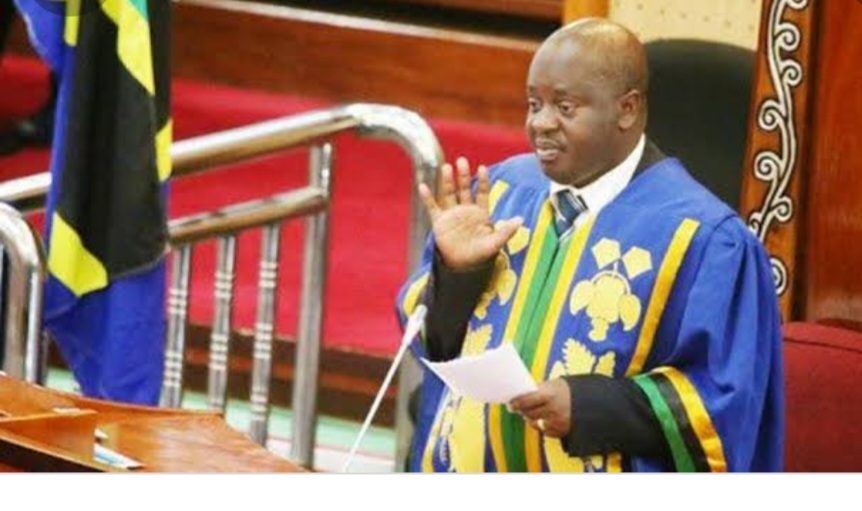IT is Abba Eban (1915-2002), an Israel diplomat and politician, who said, “men and nations behave wisely once they have exhausted all other alternatives.”
This week, one of the online media outlets came out with a screaming headline, “Ndugai: The day will come when this country will be auctioned.” It was quoting Job Ndugai, the Speaker of Tanzania ‘s National Assembly.
Before getting the top job at National Assembly, Hon. Ndugai (between 2010 and 2015) served as the Deputy Speaker; a position whose occupant advises the Speaker.
Actually, the core functions of Parliament led by the Speaker are; legislation, representation, scrutiny (examining government) and formation of government. The question about management of the economy are at the center of the scrutiny role of the National Assembly.
Recently, the media have severally quoted him saying, “borrowing for development is not sustainable. There is a need for the government to explore alternative means of raising funds to finance infrastructure investments (instead of borrowing).”
Being a leader of such an important organ of government responsible for examining the executive, particularly on matters state of the economy, Ndugai should not be joining us (the outsiders and powerless) in lamenting about the rising debt. I have always found it akward seeing and hearing Ndugai behave this way.
But, surprisingly, he never raised a voice during the five-year rule of President John Magufuli when government borrowing reached its zenith with the common people and the opposition warning against the risks of a skyrocketting public debt.
In fact, he was once quoted telling the parliament that, by all means, he would influence the parliament to extend Magufuli’s presidential term beyond the constitutional limit of ten years. Obviously, Ndugai had been caught up in the conspiracy of Magufuli’s life-presidency.
Who scrutinises Tanzania’s fiscal policy?
I felt the best he could do (if he didn’t get the ear of those he is supposed to officially check) was either to resign or keep quiet. I may not be sure of everything, but what I am pretty sure of is that Tanzania cannot borrow any money when Ndugai, by virtue of his position, is not informed.
Yesterday, I tweeted, “The Speaker of National Assembly is warning himself in media outlets. Who exactly checks Tanzania’s fiscal policy? Who legislates on it? Who represents about it?“
Of course, I know who the “Chief Minister of Finance” is. And she doesn’t mince her words. In an indirect response to Ndugai, President Samia Hassan has categorically said there is no need to worry over the public debt as long as it is for development projects.
So, we know who scrutinises the fiscal policy. We also thought we knew who legislates on it and who represents us about it. Not until he cried out aloud.
The truth of the matter is, Ndugai was right. Any economist or finance expert who has ever sat in a graduate school class knows debt-to-GDP ratios are irrelevant when assessing a nation’s debt position or the likelihood to default.

Economists are taught to check not a number, but a qualitative point in debt. First, they must ask: “is the country’s debt issued in money it can freely print?”
In other words, is the country’s currency sovereign or not? If yes, a default can only happen as a political position, as you can never run out of a commodity (domestic money) of which you are the monopoly supplier.
Tanzania’s financial assets stand at 0.9%
In 2009, Greece (at 120% debt/GDP) defaulted, and Japan (at 224%) did not and might never default. Why? Greece cannot print euros.
Therefore, they were revenue constrained since the Greek government had to earn the euros needed to service its debt. Similarly, Tanzania’s debt is issued in dollars. Thus we must also earn the dollars needed to service our debt. Japan, on the other hand, does not have to, since it can print the Yen in which its debt is issued.
Secondly, I learnt in my graduate school (and I am still learning) that what matters to asses the default risk is the country’s ability to service its debt, and debt-to-GDP does not give much information on the country’s repayment ability.
Most importantly, GDP is not the source of the government – it is a country’s resource as a whole, and neither is the gross debt the cash that the government has to pay.
Thirdly, if a number must be used, net debt(i.e gross debt minus financial assets) to GDP should be used. Unlike debt-to-GDP ratio, the former helps to estimate the real debt situation of a country. Currently, our gross debt as percentage of GDP is 39.6% and is projected to rise to 41.6% next year( IMF figures)
On the other hand, Tanzania’s financial assets(including domestic and foreign financial claims, special drawing rights and goldnet of liabilities) as a percentage of GDP are at 0.9%( World Bank figures). You can do the math, in relation to the gross debt above, and see how our situation is getting bad.
What the future tells?
Fourthly, we were taught always to try as much as possible, to establish the payment ability to a country i.e the cost of the debt to be serviced.
This is determined by the net interest service (NIS) as a percentage of GDP. Dividing it with the country’s tax burden gives an idea of the strain put on interest payments on government treasury.
For example, in Tanzania paying a single government employee, even before paying debt principals paid 12% of public revenue as NIS. Anyone levelheaded should be worried even if our debt-to-GDP ratio is still in green( below 50%).
Fifth, it is advisable to always consider the debt burden ratio i.e the ratio of debt to revenue. At personal level, if you pay Tshs 20,000 in debt interest and have an income of Tshs 400,000 your debt burden ratio is 5%.
Now here is the killer; Japan( with a debt-to-GDP ratio of 256%, and projected to fall to 252% in 2022) has a debt burden ratio of only 3.3%
On the other hand, Tanzania with a debt-to-GDP ratio of 39.6% has a debt burden ratio upwards 16%. Japan actually has one of the smallest debt burdens in the world. Why? Japan has quite a lot of leeway to increase taxes, while Tanzania has less potential.

Finally, economists are taught never to forget to look into the future. The simplest way to do this is to check the government’s structural budget balance by asking a question: is the country’s structural budget deficit below or above the long-term inflation?
If it is below the country is safe otherwise it is in trouble no matter the debt-to-GDP ratio. It doesn’t require a genius( let alone calculations) to know that Tanzania’s government’s structural budget balance is abovelong-term inflation.
So do our mis-leaders think about the well being of their children and grandchildren? Or again the use commonsense to think since they are investing in roads and dams they have invested in the children’s future? Well nice roads and dams did not stop Greece to go bankrupt. My point?
Let’s mind the debt we are accumulating beyond the debt-GDP-ratio.
Why invest in egg shell and forget the yolk?
In a quick rejoinder to Hon. Job Ndugai; Hon. Peter Serukamba( the former member of parliament for Kigoma South); unthinkingly in a confident style defended the government in it’s malaise of the borrowing binge. Our “misleaders”.
Yet even if we went by the traditional and politicians’ favorite metric of debt-to-GDP ratio, we are nearing crisis.
At one point a few years ago, one of the International Monetary Fund resident representative in Tanzania was quoted saying the ambitious infrastructure investment we embarked on would result into an increase in debt to about 50% of GDP in the near future.
We all appreciate the need to build infrastructure. What we are concerned about are three things. one, the failure to phase and sequence these infrastructure projects.
Second, the fact that the projects are being inefficiently implemented(expensive than usual, poorly fixed, and delayed) yet most of them are being funded using borrowed money. How shall we pay back?
Thirdly, we abandoned the essence of “egg analogy” which is at the centre of the Vision 2025 to guide Tanzania’s development agenda.
We are investing more money in the egg shell( government, security, legislature, accountability etc.) than it’s yolk( agriculture, manufacturing, tourism, minerals, ICT). And we expect egg to hatch.
When we raise these concerns, all we get are excuses how investments in infrastructure and security is synonymous with investment in tourism, industry and agriculture since they all need roads, electricity and security.
Some of us know the difference between investing in and investing for a sector, and how each performs in terms of return on investment.
Empirical research, for example show that whereas investing a dollar in agriculture returns 3.2 dollars, investing for agriculture( say in roads that transport the agricultural produce) returns only 1.7 dollars.
I know some of these things I have written here do not make a lot of sense to appraise public investments more than economics.
However, the day we shall struggle to find money to pay salaries or buy utilities for government workers and offices, reality will hit us hard. And that day is not too far into the future, if it has not yet arrived.
Whatever the case, we cannot afford to continue on the fiscal path that we are on. It is reckless. This infrastructure madness has to stop.
If we don’t do it ourselves, the iron laws of economics will do it for us-and that, take it from me, does not come cheap.










